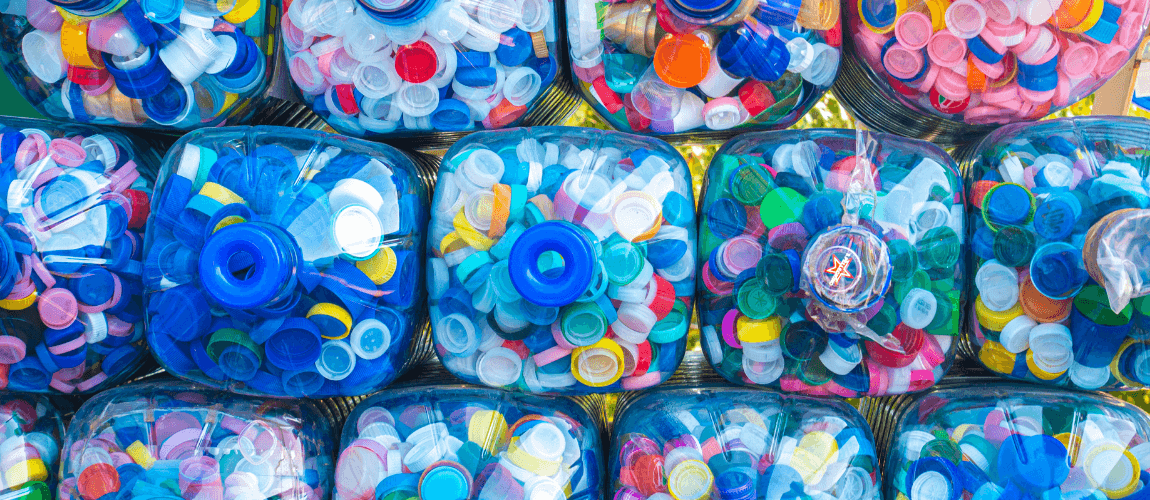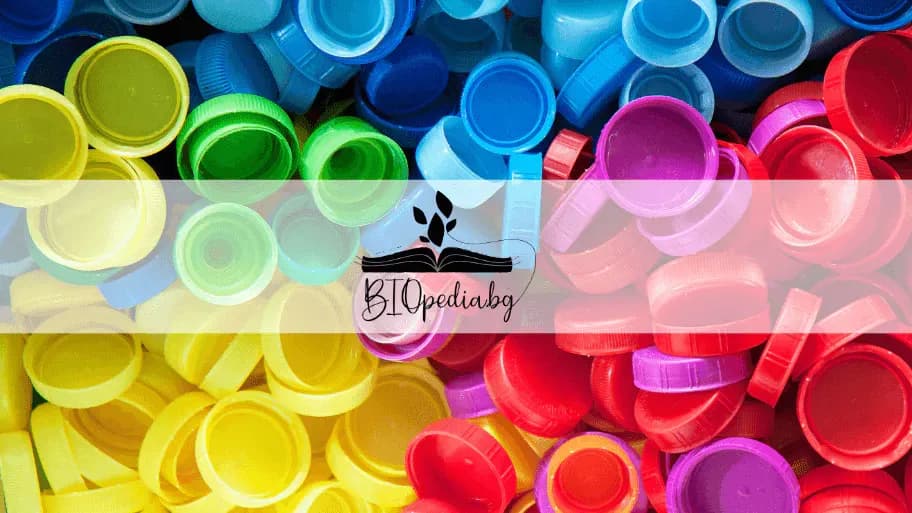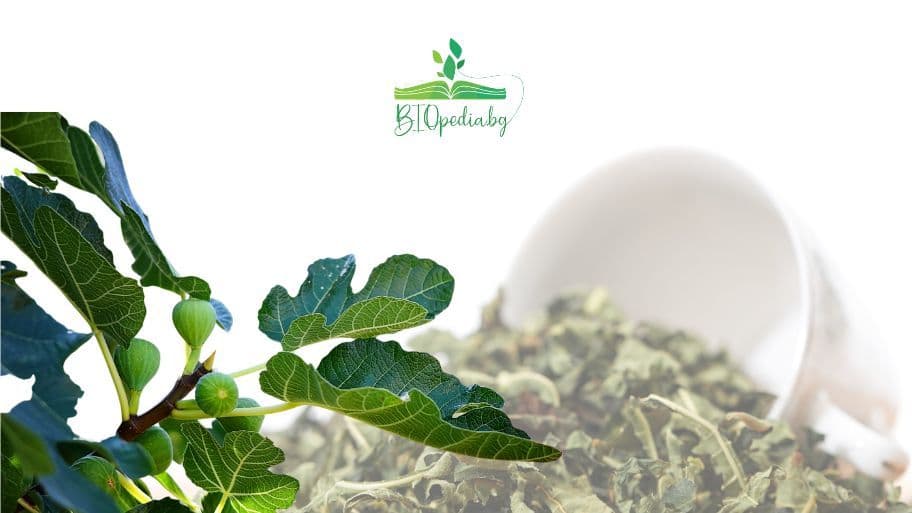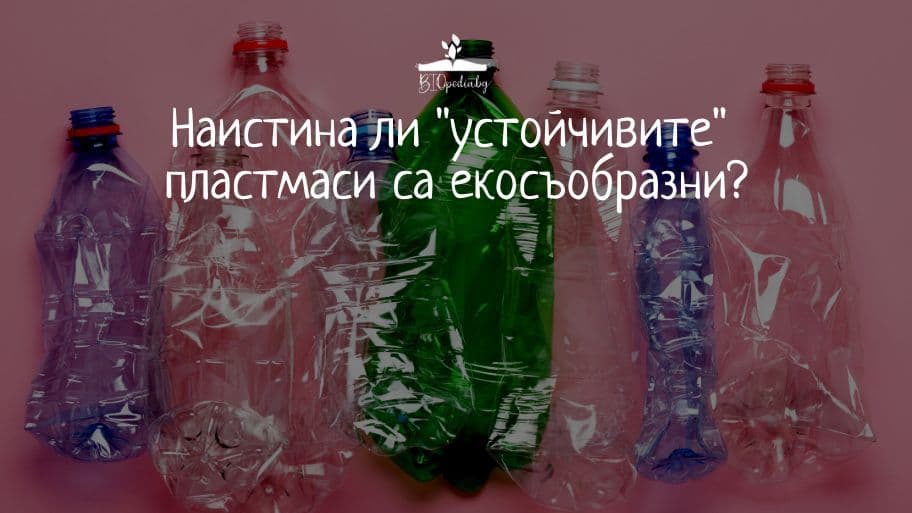In recent years, plastic has become an integral part of our society and everyday life. Characterised by a short life cycle but a very long life cycle, plastic has a negative impact on the environment and pollutes nature on an unsuspected and frightening scale.
In this guide, we explain everything you need to know about plastic recycling, such as whether you can recycle plastic bags and what plastic can be recycled within Europe and in particular in Bulgaria.
Find the answer to all your plastic recycling questions in today's article, so you can proactively collect this waste separately and recycle it, reducing the damage to the environment.
Plastic recycling - what is it?
Plastic recycling refers to the process of recovering waste or leftover plastic and converting the materials into functional and useful products.

NGOs and other initiators also organize annual events where plastic waste can be taken to be recycled. However, the process of sorting and recycling these materials is still not so accessible and easy for the ordinary Bulgarian citizen.

The aim of plastic recycling is to reduce the high levels of plastic pollution while reducing the need to produce brand new plastic products.
By recycling plastic we can collectively save resources, reduce the plastic that ends up in landfills and prevent it from ending up in unintended places such as rivers, streams, seas and oceans, which is extremely harmful to the environment.
According to National Geographic, plastic loses some of its quality every time it is recycled. It can therefore only be recycled about 2-3 times.
Recycling plastic - useful facts
As society becomes more conscious about dealing with global warming and a host of other environmental issues, more is being done to recycle and live a more sustainable lifestyle.
According to figures published by the British Plastics Federation, in 2000 only 13,000 tonnes of plastic bottles were recycled in the UK.
This compares to 380,000 tonnes last year.
Such positive trends are also being seen in many other countries around the world. Bulgaria is no exception, although it cannot be denied that in our country positive change is happening much more slowly and on a much more modest scale.
To further highlight the importance of recycling plastic, here are some interesting facts about recycling:
Around 70% of all beverage bottles in the average European country are recycled. Recycling five plastic bottles creates enough insulating fibre to fill a ski jacket. The average European country uses over 10 billion shipping containers each year.
Most of these are plastic shopping bags and once discarded can take up to 100 years to degrade. Most households in a European country throw away around 40kg of plastic each year. Enough to make 10 recycling bins.
Which plastic can be recycled?
Plastic recycling - which types of plastic are suitable for recycling. There are many different types of plastic used for different products. In theory, all plastics can be recycled, although this can depend on economic and logistical factors.

Types of recyclable plastics
In Europe and Bulgaria in particular, the two most used types of plastic are known as PET and HDPE, used to make soft drink bottles, milk bottles and a host of other products on the market. Most durable plastics can also be recycled through a process known as 'mechanical recycling'.
This is the breaking down of plastic without changing its chemical structure. Today, a relatively new type of plastic recycling is also used - chemical recycling. In this process, the chemical structure of the plastic is changed.
PET/Polyethylene terephthalate - Used for water bottles, soft drink and soda bottles, etc.
HDPE/High Density Polyethylene - Used for chemical drums, toys, picnic utensils, household and kitchen utensils, cable insulation, bags, food packaging material.
PVC/Polyvinyl Chloride - Used for window frames, drainpipes, water pipes, medical devices, blood storage bags, cable and wire insulation, resilient flooring, roofing membranes, stationery, automotive interiors and seat upholstery, fashion and footwear, packaging, cooking foil, credit cards , synthetic leather and other coated fabrics.
LDPE/Low Density Polyethylene - Used for soft bottles, toys, plastic bags, chemical tank linings, heavy bags, general packaging, gas and water pipes.
PP/Polypropylene - Used for buckets, crates, toys, medical components, washing machine drums, bottle caps and battery boxes.
PS/Polystyrene - Used for toys, rigid plastic packaging, refrigerator trays and boxes, cosmetic packaging and jewelry.
Plastic recycling - how?
There are a number of steps in the plastic recycling process, although the steps may vary slightly depending on the type of plastic being recycled.

The most typical process includes:
Collection - The first stage of the recycling process involves collecting plastics from our homes, workplaces, schools and other locations. To help with the next steps in the process, it is important to recycle correctly.
Sorting - Plastic recycling is separated from other materials. This is done at a materials recovery facility (MRF). It can then go to a Plastic Recovery Facility (PRF) for further sorting of the different types of plastic.
Washing - Washing helps remove labels, waste left in containers, and any food waste. Washing is an important step in the process because the cleanliness of the plastic can affect the quality of the finished recycled product.
Shredding - The washed and sorted plastic is sent through a plastic recycling machine to be shredded into smaller pieces of plastic.
Melting and making into pellets - The shredded plastic is then melted and made into small pellets. The pellets are then sold to manufacturers.
Reuse - The final stage of the plastic recycling process is the formation of the pellets into new products for reuse.
Plastic recycling - why?

Plastic recycling is seen as a key way to reduce environmental impact and costs in many sectors around the world, including retail, manufacturing and construction. There are many benefits of recycling plastic including:
Providing a sustainable source of raw materials for industry. Significantly reducing negative environmental impacts.
Minimising the amount of plastic sent to landfill. Consuming less energy compared to producing new, virgin polymers.
Outlining the right values and behaviours when it comes to attitudes towards recycling, especially if a business includes it as part of its corporate governance strategy.





Comments